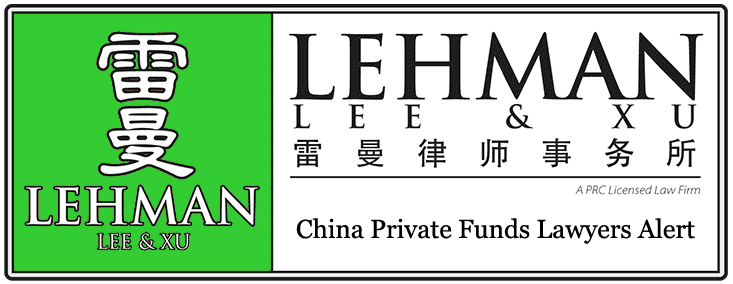BEIJING – China’s 12th Five-Year Plan calls for a shift in the country’s economic model from export-led growth toward greater reliance on domestic demand, particularly household consumption. Since the Plan’s introduction, China’s current-account surplus as a share of GDP has indeed fallen. But does that mean that China’s adjustment is on track?
According to the IMF, the fall in China’s current-account surplus/GDP ratio has largely been the result of very high levels of investment, a weak global environment, and an increase in prices for commodity imports that has outpaced the rise in prices for Chinese manufactured goods. So the fall in China’s external surplus/GDP ratio does not represent economic “rebalancing”; on the contrary, the Fund predicts that the ratio will rebound in 2013 and approach its pre-crisis level thereafter.
The IMF’s explanation of the recent fall in China’s current-account surplus/GDP ratio is broadly correct. Experience suggests that China’s external position is highly sensitive to global conditions, with the surplus/GDP ratio rising during boom times for the world economy and falling during slumps. Europe’s malaise has hit China’s exports badly, and undoubtedly is the most important factor underlying the current decline in the ratio.
By definition, without a change in the saving gap, there will be no change in the trade surplus, and vice versa. Furthermore, the saving gap and the trade balance interact with each other constantly, making them always equal. In response to the global financial crisis in 2008, China introduced a RMB4 trillion ($634 billion) stimulus package. While the increase in investment reduced the saving/GDP ratio, the resulting increase in imports lowered the trade surplus/GDP ratio. As a result, China’s external surplus/GDP ratio fell significantly in 2009.
In 2010, China’s government adjusted its economic policy. In order to control inflation and real-estate bubbles, the central bank tightened monetary policy and the government refrained from another round of fiscal stimulus. China’s real-estate investment accounted for 10% of GDP, and slower investment growth in the sector necessarily reduces import demand, directly and indirectly. But, because the fall in import growth had yet to turn into a rout, while China’s exports to Europe plummeted, China’s current-account surplus fell further in GDP terms in 2011.
This situation is likely to change in 2012. The negative impact of the fall in real-estate investment since 2010 has been deeper and longer than expected; indeed, almost all categories of imports that fell by 10% or more in August were related to real-estate investment. As a result, it is possible that the fall in investment growth will reverse the declining external surplus/GDP ratio in 2012, unless the global economy deteriorates further and/or the Chinese government launches a new stimulus package.
Perhaps most important, China must now export more manufactured goods to finance imports of energy and mineral products. The worsening terms of trade have been a major factor contributing to the decline in the current-account surplus in recent years.
Nevertheless, despite the merits of its analysis, the IMF underestimates China’s progress in rebalancing. In my view, China’s rebalancing is more genuine – and more fundamental – than the Fund recognizes, and the prediction of an eventual rebound in China’s external surplus/GDP ratio will most likely turn out to be wrong.
First, the roughly 30% real exchange-rate appreciation since 2005 must have had a serious impact on exporters, reflected in the bankruptcy – as well as the upgrading – of many enterprises in coastal areas. Though the market shares of Chinese exports seem to have held up quite well, this is attributable to price-cutting in foreign markets, which is not sustainable. Over time, real exchange-rate appreciation will cause a shift in expenditure, making China’s rebalancing more apparent.
Second, China’s wage levels are rising rapidly. According to the 12th Five-Year Plan, the minimum wage should grow by 13% per year. Together with real appreciation, the increase in labor costs is bound to weaken the competitiveness of China’s labor-intensive export sector, which will be reflected in the trade balance more clearly in the coming years.
Third, China has made significant progress in building its social-security system. The number of people covered by basic old-age insurance, unemployment insurance, workers’ compensation, and maternity insurance has risen substantially. Moreover, universal medical insurance is emerging, and a comprehensive system for providing aid to students from poor families has been established. As a result, the motivation for precautionary saving has been weakened somewhat, while some researchers have found statistical evidence that the consumption rate is rising, which is supported by China’s emergence as the world’s fourth-largest importer of luxury goods.
Finally, the worsening of China’s terms of trade will play an even more fundamental role in reducing its trade surplus in the future. Given weak demand, which may be prolonged, Chinese exporters must accept increasingly thin profit margins to maintain market share. However, China’s large size and low per capita income and capital stock imply continued rapid growth in its demand for commodities. Thanks to supply constraints, China’s import bill for commodities and metals is likely to offset its processing-trade surplus in the near future.
In short, as long as China’s government is not so unnerved by the slowdown in output growth that it changes its current policy stance, the current-account surplus is more likely to continue to fall relative to GDP than it is to rebound in 2013 and thereafter. In fact, such an outcome is not only likely, but also desirable. After all, faced with “infinite quantitative easing,” being a large net creditor means being in the worst position in today’s global economy.
http://www.project-syndicate.org/commentary/five-year-plan-imf-chinese-exports-by-yu-yongding
|

